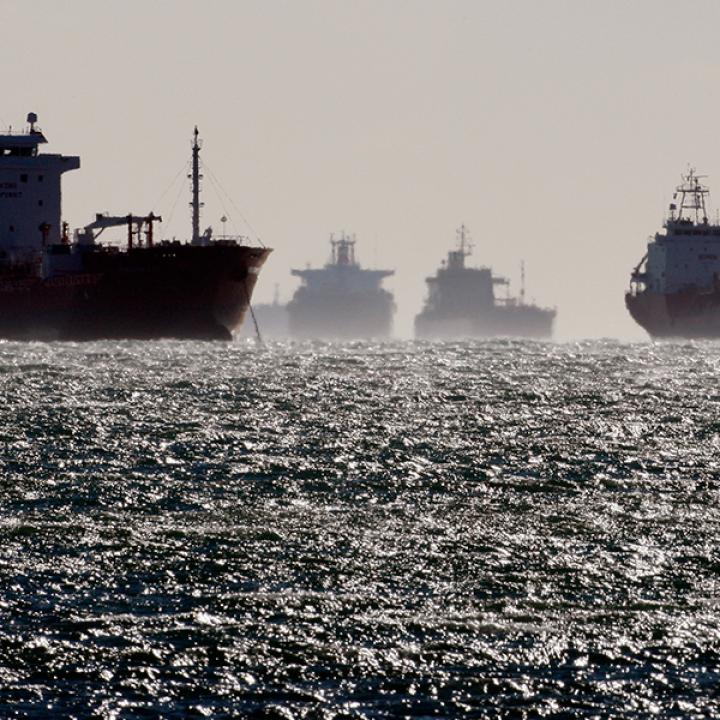
- Policy Analysis
- Policy Alert
A British Trip to Secure Extra Saudi Oil?

Boris Johnson’s expected visit reflects both the urgency of the crisis and the chill between Riyadh and the White House.
Increased Saudi oil production is seen as crucial to replace widely sanctioned Russian exports, but Riyadh has yet to oblige despite the growing wartime urgency. News reports last week spoke of an apparent breakdown in Saudi communications with President Biden, who wants the kingdom to renege on its production-limiting agreement with fellow OPEC+ member Russia.
Enter Boris Johnson. As of this writing, the British government is speaking of talks with the Saudis only in general terms, but the prospect of a prime ministerial visit to Riyadh later this week seems all but confirmed. Johnson reportedly has a good relationship with Crown Prince Muhammad bin Salman, the kingdom’s de facto leader, with whom he is said to regularly exchange WhatsApp messages.
British health secretary Sajid Javid, a frequent mouthpiece for Johnson’s views, stated this morning, “It is important to recognize, whether we like it or not, that Saudi Arabia is one of the world’s largest oil producers, and at a time of a major global energy crisis that has been caused by this war in Europe...it is right for the prime minister and other world leaders to engage with Saudi Arabia.” The “whether we like it or not” phrasing is a reference to human rights concerns, particularly the 2018 murder of dissident journalist Jamal Khashoggi.
These concerns will probably be exacerbated by the kingdom’s March 12 execution of eighty-one prisoners, a record number of judicial killings in a single day. Details on the prisoners—who were probably beheaded with a sword—are still sparse, but apparently most were charged with either terrorism (often code for offenses by Shia Muslim opponents of the Sunni royal family) or “deviant thinking” (i.e., Sunni extremists). An official statement accused them of “multiple heinous crimes that left a large number of civilians and law enforcement officers dead.” The announcement also emphasized that appropriate legal processes had been followed in each case, though their timing and number suggest that Riyadh wanted to make a political point as well.
One immediate consequence of the executions is the cancelation of another round of cautious Iranian diplomatic talks with Riyadh, which were expected later this month. Tehran presumably noted that more than half of those put to death were Shia, despite that community’s relatively tiny proportion of the kingdom’s total population (around 15 percent).
London’s ability to engage with Riyadh may be helped by their longstanding defense relationship. This includes the sale, armament, and maintenance of Typhoon fighter-bombers, which the Saudis have used in the conflict against Iran-backed Houthi rebels in Yemen.
At the same time, various question marks hang over Johnson’s head and could conceivably affect whether the visit takes place. A police inquiry continues over his role in breaking the COVID lockdown by holding wine and cheese parties in his Downing Street offices and garden. Additionally, the Sunday Times just ran a lengthy investigative story about his links to the son of a Russian oligarch and former KGB officer whom he appointed to the House of Lords in 2020. British media have also recalled how Johnson joked at two private meetings last year that under his hardline Home Secretary, who is responsible for prisons, Britain could become “the Saudi Arabia of penal policy.”
There is still the possibility that President Biden will make a trip to the Middle East in the next few months, to include Saudi Arabia. In the meantime, however, Johnson’s likely visit reflects the urgency of the Ukraine crisis and the need to take diplomatic advantage of almost any opportunity to resolve it.
Simon Henderson is the Baker Fellow and director of the Bernstein Program on Gulf and Energy Policy at The Washington Institute. This article is published under the auspices of the Institute's Diane and Guilford Glazer Foundation Program on Great Power Competition and the Middle East.



